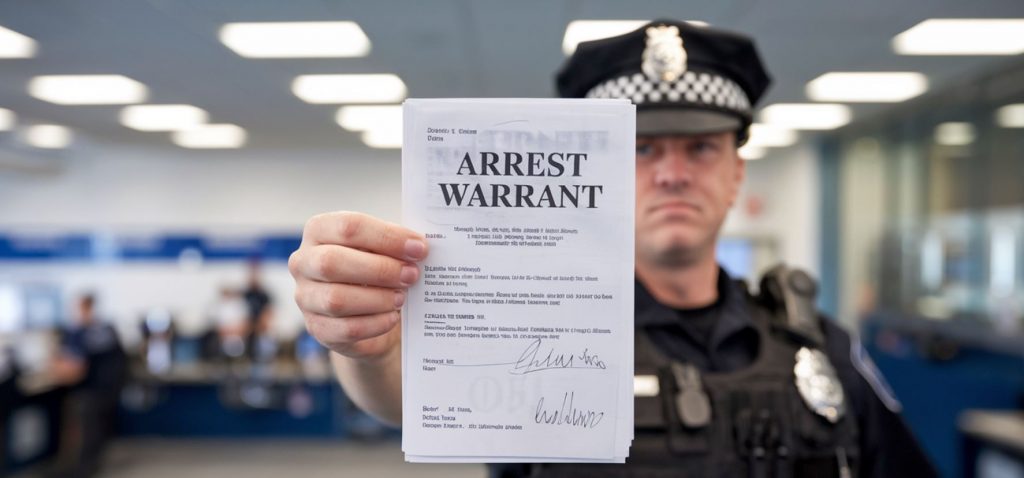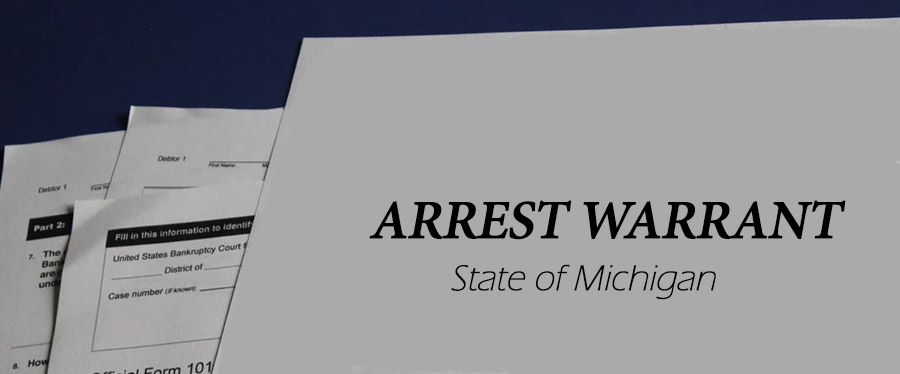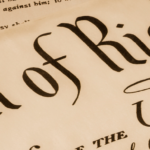Is there a way to find out if I have a warrant?
Following an investigation by police, the officers provide the prosecutor with a police report and request a warrant. If the prosecutor agrees that the defendant committed a crime, they prepare an arrest warrant.

Protect Yourself Before the Police File Charges
If you were involved in an incident that you believe may lead to charges against you, you must not ignore the matter and hope for the best. Chances are, if you are honest with yourself, you will have a pretty good idea if you are in danger of being charged. If a court issues a warrant for criminal charges, they will never go away until you deal with them in court. If the court has not issued a warrant or the police haven’t filed a case yet, it is a perfect time to hire an experienced, respected, and top-rated criminal defense attorney. A skilled and qualified attorney can find out if you have a warrant, whether you are under investigation, and talk the police or prosecutor into not charging you. An experienced pre-charge criminal defense lawyer may also be able to prevent you from being arrested on new charges. If you’re asking yourself, “How do I find out if I have a warrant?” it is time to call a qualified, experienced lawyer to help you.
Can I find out if there are charges without a lawyer?
The answer is maybe yes and perhaps no. If the government has already filed a case, the court’s clerk might tell you if there is a pending charge. Many courts will not release this information until the defendant’s arraignment on open felony or misdemeanor charges. If your matter is under investigation and you have not yet been charged, the court staff cannot provide any information.
If you look into the matter without a criminal lawyer, you can check the city’s district court website where the incident occurred. You log on to the court website, and if it has a case search function available, you can enter your name and see if there is an outstanding case against you. An online court’s docket search function is a convenient and anonymous way to investigate the matter.
If you call the court, you would ask the criminal clerk if a case is pending against you. Again, they may or may not answer your question. If a clerk finds that charges were filed against you (a warrant), they may tell you that you must come into court or the police department and present identification before giving you an answer. Telling you to go to the courthouse is a trick! You will likely be taken into custody when you arrive in court. Once the court officer arrests you, they will bring you before a magistrate for arraignment. You should never go to court without a lawyer. Suppose the clerk tells you that an appearance is mandatory and you must appear in court or the police department for any reason. In that case, you should immediately end your self-help efforts and get qualified legal counsel. Remember, a seasoned defense lawyer will know all the tricks and how to turn the tables, so you have the advantage in court.

“Can I call the police and find out if I have a warrant?”
You can also call the local police station, the sheriff, or the State Police and ask them if a case is pending or charges are filed in court. They are used to people calling and asking how to “find out if I have a warrant?” or “how to find out if there are pending charges against me for free?” However, this can quickly become problematic. If an investigation is ongoing or they have already filed charges, the officer will immediately press you into speaking or coming into the station to answer probing questions. You will most likely be intimidated, nervous, and reluctant to end the conversation at risk of offending the officer. Getting tricked into talking with the police is a common and utterly human reaction to being in such a position. In the worst-case scenario, the officer will misinterpret something you say and use it against you. A lawyer can contact the police on your behalf without fear that you will say something harmful or that the police can use against you in court. Also, an experienced lawyer can arrange for you to self-surrender and for a low or personal bond.
Invoke the Fifth and Remain Silent if You are Arrested
If you have contact with law enforcement or a police officer, you should immediately invoke your right to remain silent and ask for an attorney. You should know that the officer will not be offended, and they will know you are only exercising a constitutional right. Think of it this way: if someone accused a police officer’s family member of a crime, they would first tell their loved one to remain silent and ask for a lawyer. No one knows better than a police officer that the goal when speaking with a person under investigation is to build a case and obtain an incriminatory statement through any trickery necessary.

What can a lawyer do for me? How can a lawyer find out if I have a warrant?
Everything. An astute, reputable criminal defense attorney will know precisely how to deal with the situation. They will contact the court and ask if you are in the court system. Clerks usually will tell an attorney. An attorney can also call the police and ask if they have a case against you. Sometimes, they will not admit a matter is under investigation, but the best attorneys know how to get information from law enforcement politely and professionally. Your attorney can contact the officer in charge, negotiate a voluntary surrender, and prevent your arrest on a warrant. Police officers like the idea of not having to track people down. The police will likely rely on a known and respected defense lawyer’s assertion that the defendant will voluntarily appear in court.
If a case is under investigation, sometimes the police will want to discuss the case with a retained attorney. If so, it is the attorney’s perfect opportunity to attempt to dissuade the police from seeking a warrant. There are countless ways a top-rated attorney can do this, and there are too many to mention here. However, knowing how to do this effectively separates the best attorneys from the inferior ones. The opportunity to stop or reduce charges is lost forever if you wait until you have been charged or wait for a court-appointed attorney.
I have a warrant! What do I do next?
When a court issues a warrant, the clerk electronically enters into the Law Enforcement Information Network (LEIN). Once the warrant is in LEIN, all law enforcement officers in the United States can see it and potentially arrest the accused person. It is essential that someone subject to arrest on a warrant get to court before law enforcement takes them into custody! The advantages of hiring a lawyer and self-surrendering are as follows:
- low or personal bond
- appearing in court at a convenient time
- not being forcibly arrested at home, work, or in a compromising position
- not risking a confrontation and additional charges from an overzealous police officer
- respect of the judge for demonstrating responsibility
Studies show defendants free on bond get better plea bargains and more lenient sentences. Judges and prosecutors treat defendants who remain incarcerated more harshly.

If you find out you have a warrant, you’ll want the best defense attorneys in your corner.
The dedicated, experienced, and zealous defense attorneys at LEWIS & DICKSTEIN, P.L.L.C. have successfully represented thousands of clients under investigation for possible felony and misdemeanor charges in Oakland, Macomb, Wayne, Washtenaw, and Livingston Counties and throughout Michigan. We have a well-earned reputation for providing the highest quality defense and aggressive representation, while showing empathy and care for each client. Our aggressive and savvy lawyers are your best chance to stop or reduce potential charges. Call us, and we will find a way to help you. If you wonder, “How do I find out if charges are filed against me or if I have a warrant?” it is time to call us for a free consultation.
Call us today at (248) 263-6800 for a free consultation or complete an online Request for Assistance Form. We will contact you promptly and find a way to help you.












